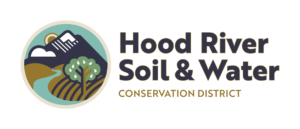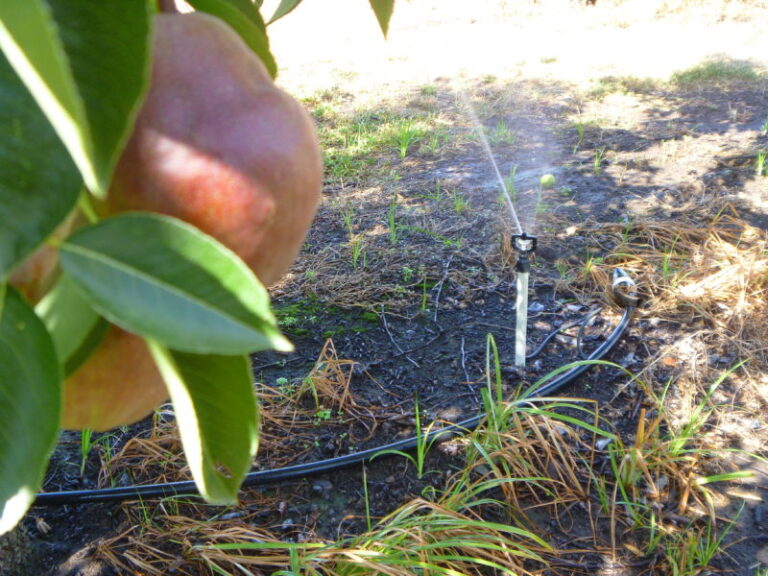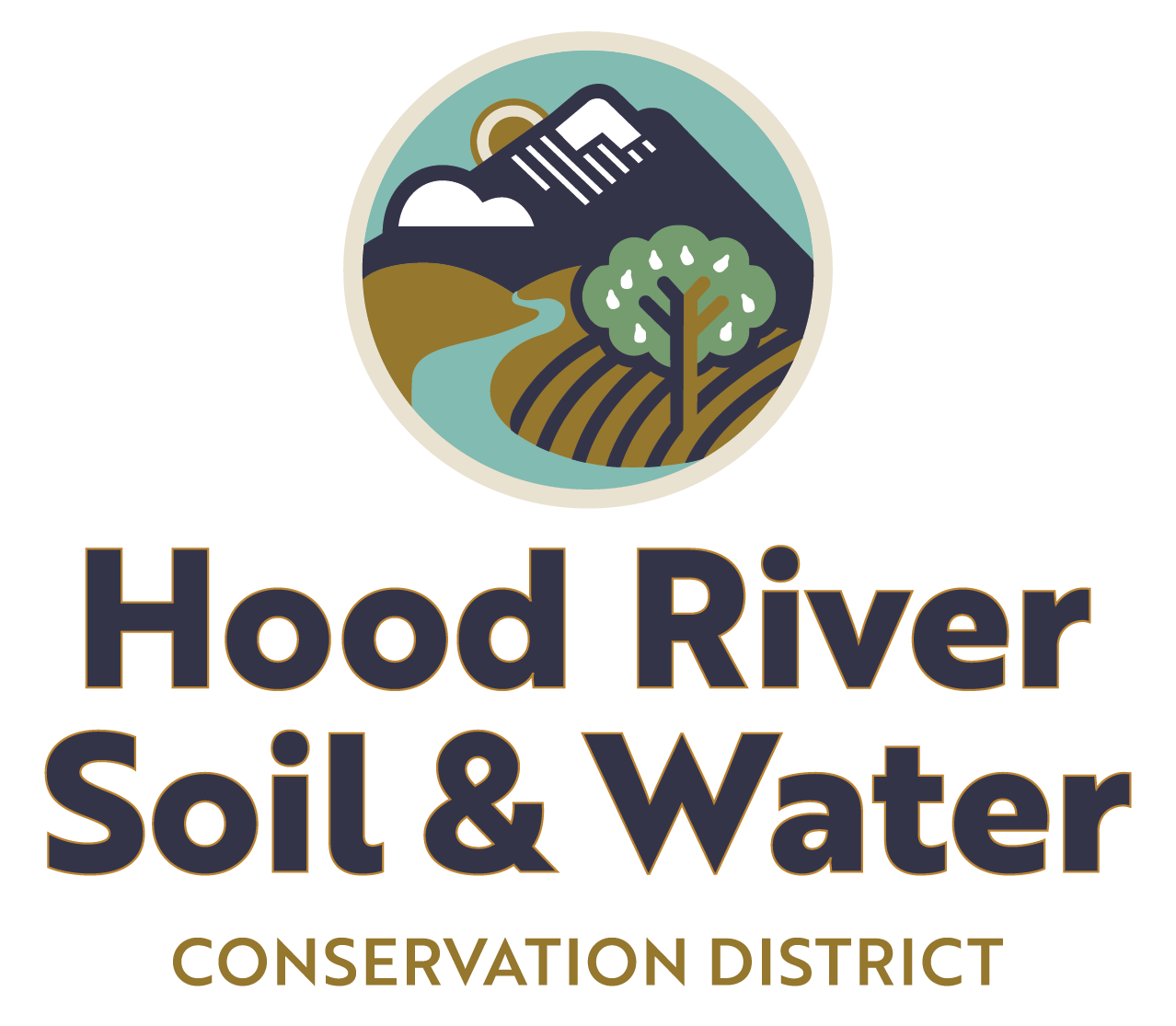Protecting Water Quality Through Voluntary Measures
The Pesticide Stewardship Partnership (PSP) program works to protect water quality and aquatic life from the impacts of pesticides. The program combines the monitoring of waterways, targeted education and outreach with pesticide users, and the voluntary implementation of best management practices to improve and protect water quality. These efforts can lead to measurable environmental improvements, thus making water cleaner and safer for aquatic life and humans.
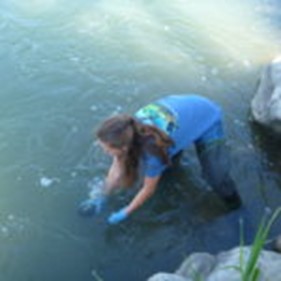
History of the PSP The Department of Environmental Quality (DEQ) started two pilot projects in the early 2000s in local area watersheds: one in the Hood River and one in Mill Creek (Wasco County). DEQ and other partners assessed whether currently used pesticides were detectable in local surface waters at concentrations of concern. In both basins, initial data showed repeated detections of several pesticides. Local partners, including Columbia Gorge Fruit Growers and the Oregon State University Extension Service, used the water quality data and local expertise to promote pesticide users implementing best management practices to reduce the risk of drift, runoff, and leaching of pesticides into area waterways. Within a short timeframe, both pilot projects showed substantial improvements in water quality associated with changes in pesticide management practices.

Growth of the PSP Program
The Hood River and Mill Creek successes showed that the PSP’s approach could be an effective alternative to traditional regulatory approaches dealing with non-point sources of chemicals in water. To date, there are nine PSPs active in the state. The DEQ lab has been able to increase the number of pesticides it analyzes to over 140. As a result, the state can detect some newer-generation pesticides in PSP watersheds. This data is not used in a regulatory capacity but helps focus outreach and technical assistance efforts in the watersheds.
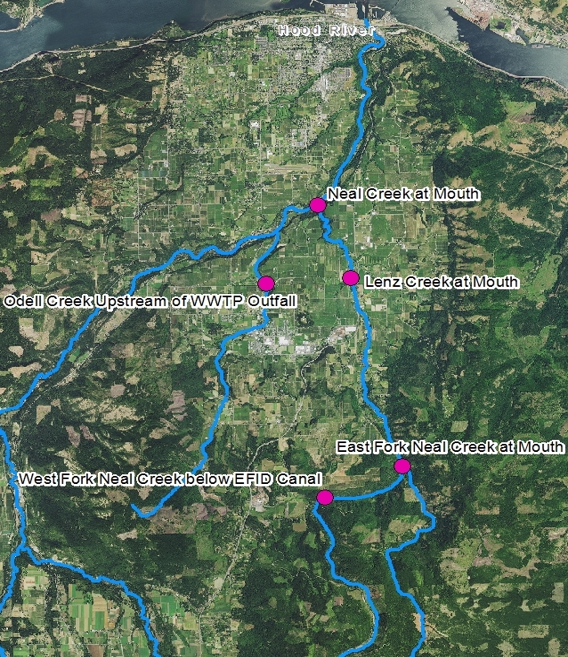
Hood River PSP Today
The Hood River PSP program analyzes water samples from four sites: Neal Creek, Lenz Creek, Odell Creek, and Indian Creek (previously East and West Forks of Neal Creek). In addition to grab sampling, sediment samples and passive long-term samples have been taken at several sites. Water samples have been analyzed for over 140 analytes including insecticides, fungicides, and herbicide products. Starting in 2015, a third of the samples were analyzed for a suite of glyphosate and phenoxy (2, 4-D) herbicides. Across the basin multiple pesticides were detected however, few (and often none) of the detections have exceeded established U.S. Environmental Protection Agency’s aquatic life benchmarks.
For the most recent Hood River PSP data you can see it here or join us for our annual public spring meeting.
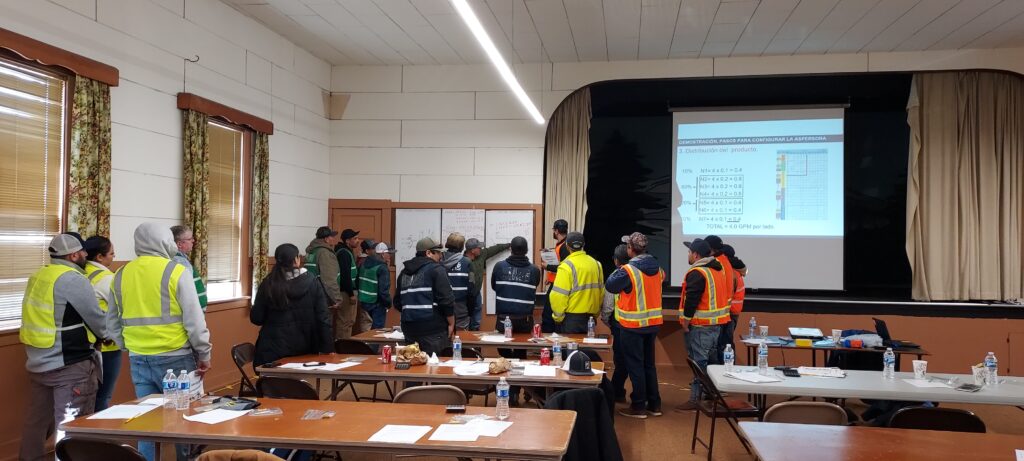
Education is a large component of the PSP program. The PSP program has funded the HRSWCD to facilitate many bilingual agricultural training programs including the Washington State Department of Agriculture’s Air Blast Sprayer Calibration, Worker Protection Standards & Pesticide Handler, and Private Pesticide Applicator Pre-license trainings. As well as Integrated Pest Management courses, printing of informational documents, local orchard tours and meetings among others. Statewide ODA hosts agricultural waste and pesticide collection events at the local transfer stations.
What You Can Do
Landowners can do their part to minimize pesticide pollution by: 1) applying, storing, and disposing of pesticides according to the label, 2) using pesticides as part of a multi-pronged integrated approach to pest control, with pesticide usage as a last resort, and using the least-toxic pesticide possible to address the problem, 3)
For more information about this team and its activities, visit the PSP webpage. For other pesticide and fertilizer questions, see the Oregon Department of Agriculture page.
For More Information contact the Hood River SWCD
Or
Contact Kathryn Rifenburg, Pesticide Stewardship Partnership Coordinator
Oregon Department of Agriculture – Pesticides Program
635 Capitol St NE, Salem, OR 97301-2532
971-600-5073
kathryn.rifenburg@oda.oregon.gov
